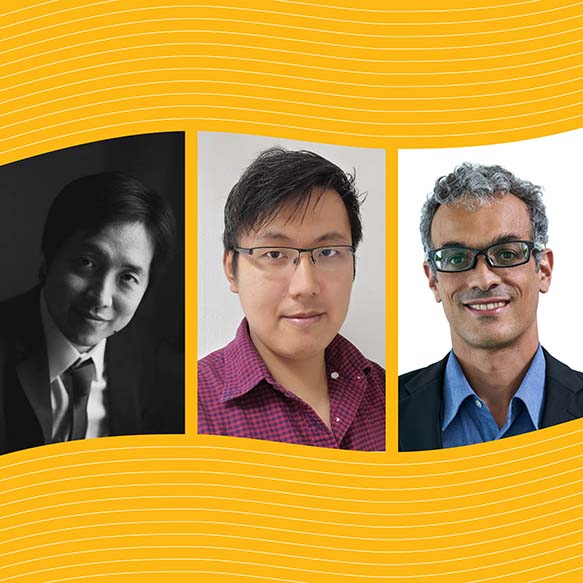Ho Wen Wei Group
The advent of programmable quantum systems — large-scale experimental platforms whose dynamics can be controlled, and in which information can be read-out at the individual, microscopic level, has ushered in new ways to probe and manipulate quantum matter far from equilibrium. Indeed, some recent exciting developments along this front include discoveries of novel nonequilibrium phases of matter called time crystals, weak ergodicity breaking mechanisms called quantum many-body scars, measurement-induced critical phenomena, and classical shadow tomography.
Our group aims to understand and characterise nonequilibrium quantum many-body phenomena realisable by these systems, utilising the dual lenses of the dynamics of quantum information and condensed matter theory. Specifically, we strive to develop theoretical frameworks to describe dynamical phases of matter characterised by different universal patterns of quantum entanglement arising at late times, coming from the interplay of entangling unitaries, external driving, intrinsic disorder, symmetries, and information-extracting measurement processes. In particular, we are concerned with the emergence of quantum thermalisation and its breakdown, as well as the scrambling of quantum information. We are also interested in developing novel applications for quantum information science specifically tailored for programmable quantum systems, such as control routes for larger classes of quantum simulation, faster state preparation protocols, and advanced data acquisition methods, with working principles based off theoretical understanding of new phenomena discovered.
Ultimately, our group's motivation is to develop a better foundational understanding of nonequilibrium quantum matter, which will have far-reaching consequences in condensed matter, statistical mechanics, quantum chaos, and quantum thermalisation. Such understanding can also lead to the development of better performing quantum algorithms and future quantum technologies that are robust in the presence of noise.
More information at our homepage: https://sites.google.com/view/wenweiho/


Assistant Professor
Department of Physics, Faculty of Science, National University of Singapore
Wen Wei Ho obtained his PhD in physics at the University of Geneva in 2017 in the group of Dmitry Abanin, his MSc in physics at the University of Waterloo and Perimeter Institute of Theoretical Physics in 2014 working with Guifre Vidal, and his BA in physics from Princeton University in 2013. In 2017-2020 he was a Moore postdoctoral fellow at Harvard University where he worked primarily with Mikhail Lukin and Eugene Demler, while in 2020-2022 he was a postdoctoral research fellow at Stanford University, based at the Geballe Laboratory for Advanced Materials and Stanford Institute for Theoretical Physics.
Since 2022, Wen Wei has been an Assistant Professor at the Department of Physics NUS, where he holds the title of Presidential Young Professor, and is also the recipient of the Singapore National Research Foundation Fellowship 2023. His research focuses on developing theories to understand both the fundamental and applied aspects of the dynamics of quantum many-body systems: what are novel quantum phases of matter one can find far-out-of-equilibrium, and how do we characterise their universality? How does one realise these phases in quantum simulators of today? How can one control and harness their properties for useful applications in quantum information science, like for quantum state tomography or measurement-based quantum computation?
Group Members

- Ho Wen Wei CQT Fellow
- Hao Yunchao PhD student, NUS Physics
- Wu Jihong PhD student, NUS Physics
Recent papers

- Jong Yeon Lee, Joshua Ramette, Max A. Metlitski, Vladan Vuletic, Ho Wen Wei , Soonwon Choi. (2023). Landau-Forbidden Quantum Criticality in Rydberg Quantum Simulators. Phys. Rev. Lett. 131 083601

- Matteo Ippoliti, Ho Wen Wei . (2023). Dynamical purification and the emergence of quantum state designs from the projected ensemble. PRX Quantum 4 030322








